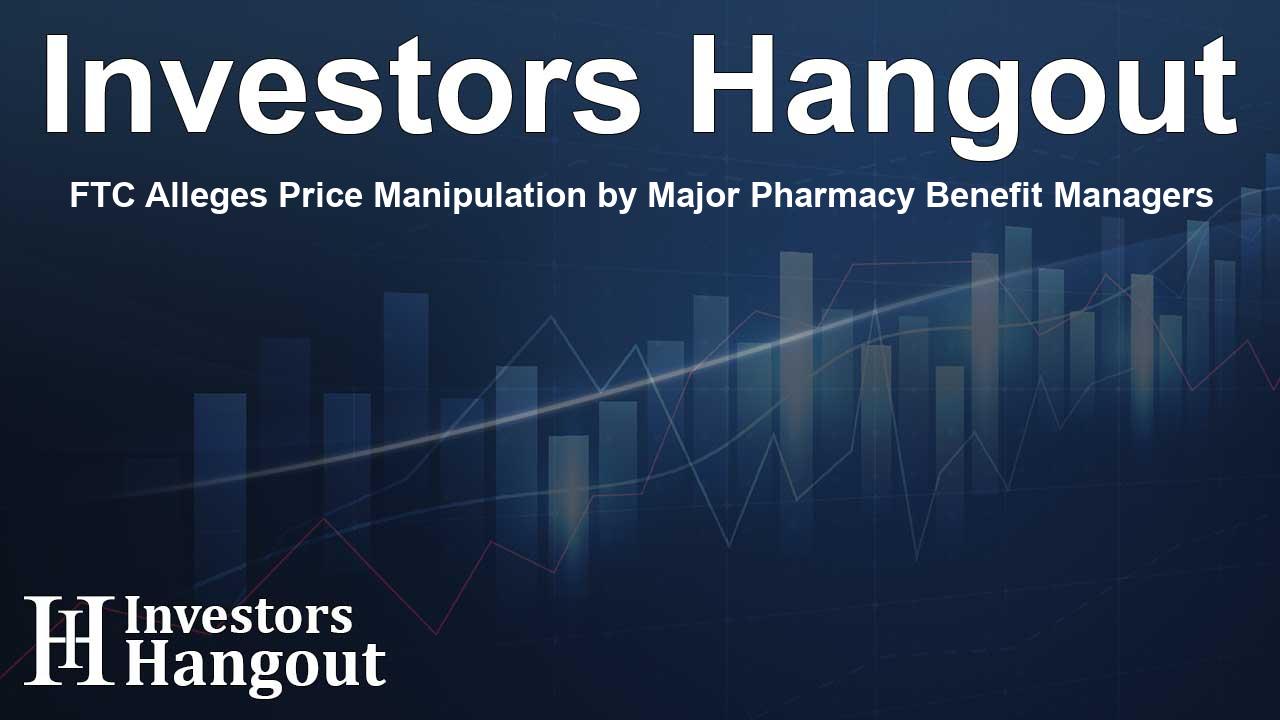FTC Alleges Price Manipulation by Major Pharmacy Benefit Managers

FTC Accusations Against Major Pharmacy Benefit Managers
In a recent statement, the Federal Trade Commission (FTC) has opened an investigation into the practices of some of the most significant players in the pharmacy benefit management (PBM) sector, specifically targeting CVS Health Corp, Cigna Group, and UnitedHealth Group Inc. Following these allegations, the shares of these companies dropped by approximately 1%. The FTC's scrutiny revolves around accusations of inflated price markups imposed on specialty generic drugs.
Impact on Stocks and Financial Outlook
The stocks of CVS, Cigna, and UnitedHealth fell in response to the interim staff report released by the FTC. The report suggests that these companies’ PBM divisions—CVS’s Caremark, Cigna’s Express Scripts, and UnitedHealth’s OptumRx—have significantly marked up prices on essential medications. These markups have reportedly ranged from several hundred percent to thousands of percent for critical drugs, including those necessary for treating conditions such as cancer and HIV, over a period spanning from 2017 to 2022.
Understanding Pharmacy Benefit Managers
Pharmacy Benefit Managers serve a crucial role in the healthcare system by managing prescription drug benefits on behalf of health insurers. However, the FTC's findings raise important questions about the level of transparency and the potential conflict of interest in their pricing strategies. The agency alleges that not only do these PBMs inflate costs, but they also provide higher reimbursements to their affiliated pharmacies compared to non-affiliated ones.
Revenue Insights from Recent Reports
According to the FTC, the strategies employed by the three major PBMs have led to an astonishing accumulation of excess revenues exceeding $7.3 billion. This staggering amount has caught the attention of regulators who are now pushing for more accountability and more robust regulations to prevent such practices in the future.
Regulatory Response and Future Implications
FTC Chair Lina Khan made a notable statement regarding the ongoing assessment of the PBM landscape, emphasizing the need for vigilance and regulatory oversight. She stated, “The FTC staff’s second interim report finds that the three major pharmacy benefit managers hiked costs for a wide range of lifesaving drugs, including medications to treat heart disease and cancer.” This declaration signifies a broader effort by the FTC to conclude their ongoing study and potentially implement changes to enhance fair pricing for consumers.
Commitment to Transparency and Consumer Protection
The FTC has reaffirmed its commitment to providing consistent updates as the investigation unfolds. With officials dedicated to gathering detailed information, the agency aims to shed light on the practices of these PBMs and their impact on drug pricing. The focus remains on ensuring that consumers are not adversely affected by inflated costs of necessary medications.
Frequently Asked Questions
What are the main allegations against CVS, Cigna, and UnitedHealth?
The FTC accuses these companies of imposing significant price markups on specialty generic drugs, leading to substantial excess revenue.
How much excess revenue have the accused PBMs generated?
The FTC reports that these pharmacy benefit managers generated over $7.3 billion in excess revenue.
What role do Pharmacy Benefit Managers play in healthcare?
Pharmacy Benefit Managers manage prescription drug benefits for insurance companies and can influence pricing and reimbursement levels for medications.
What are the potential repercussions for these companies?
Depending on the outcomes of the investigation, there may be regulatory changes or penalties aimed at preventing pricing abuses in the future.
How is the FTC responding to these findings?
The FTC is committed to delivering updates and continuing their investigation to ensure consumer protection from inflated drug prices.
About Investors Hangout
Investors Hangout is a leading online stock forum for financial discussion and learning, offering a wide range of free tools and resources. It draws in traders of all levels, who exchange market knowledge, investigate trading tactics, and keep an eye on industry developments in real time. Featuring financial articles, stock message boards, quotes, charts, company profiles, and live news updates. Through cooperative learning and a wealth of informational resources, it helps users from novices creating their first portfolios to experts honing their techniques. Join Investors Hangout today: https://investorshangout.com/
Disclaimer: The content of this article is solely for general informational purposes only; it does not represent legal, financial, or investment advice. Investors Hangout does not offer financial advice; the author is not a licensed financial advisor. Consult a qualified advisor before making any financial or investment decisions based on this article. The author's interpretation of publicly available data shapes the opinions presented here; as a result, they should not be taken as advice to purchase, sell, or hold any securities mentioned or any other investments. The author does not guarantee the accuracy, completeness, or timeliness of any material, providing it "as is." Information and market conditions may change; past performance is not indicative of future outcomes. If any of the material offered here is inaccurate, please contact us for corrections.